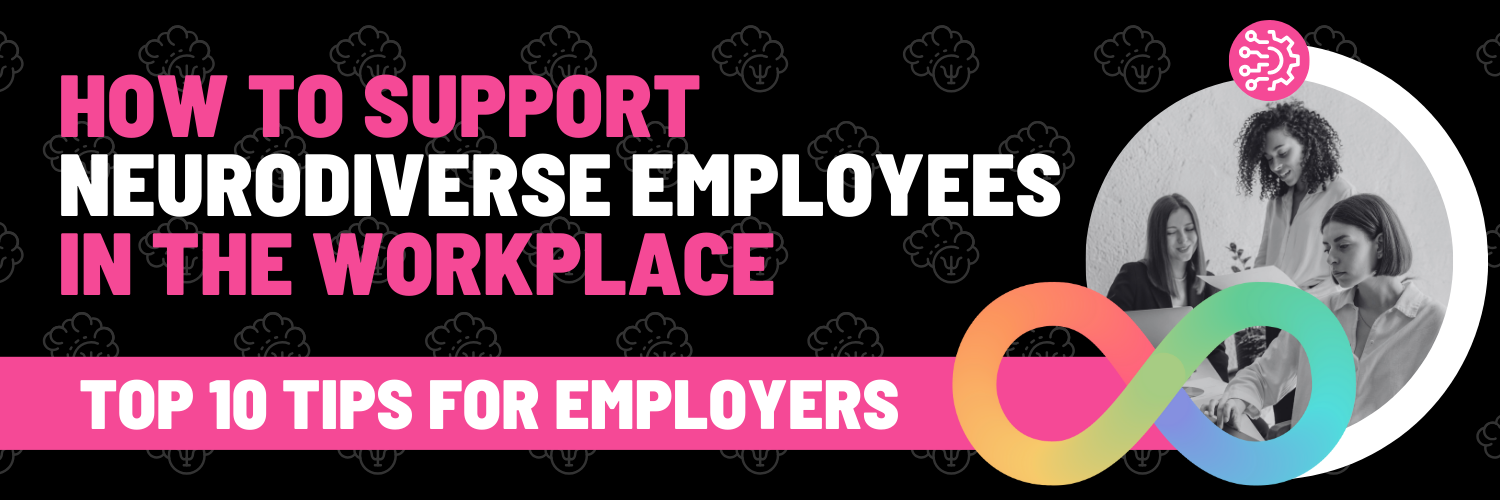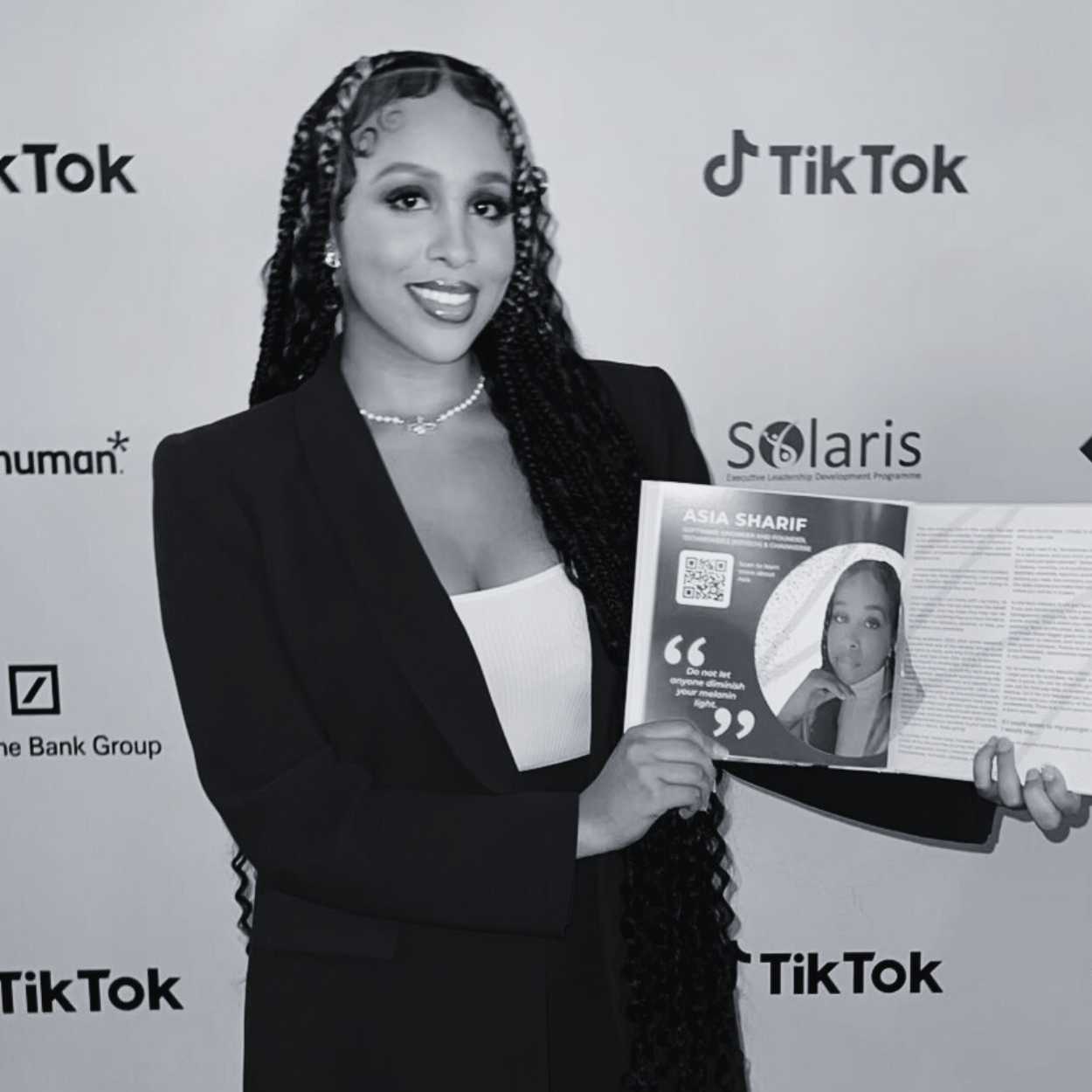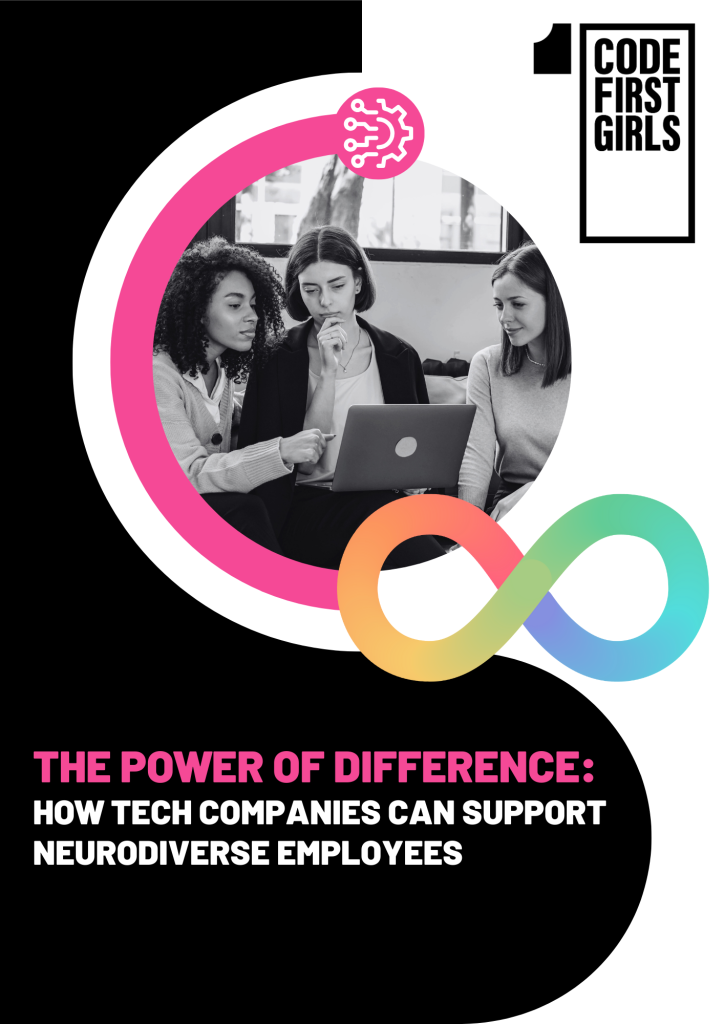
Content Menu
Top 10 Tips for Employers Supporting Neurodiverse Employees
In the UK alone, over 5 million people identify as neurodivergent. Globally, one in five people identify as having neurodivergent traits. With such a vast and varied workforce, the traditional one-size-fits-all approach to employment is outdated. To create an inclusive workplace where every employee thrives, organisations must actively support neurodiverse employees by fostering environments that embrace different ways of thinking, working, and collaborating.
At Code First Girls, we partner with over 130 companies to transform workforces through training and recruitment. In our annual survey, more than one in four members of our community identified as neurodiverse. Yet, nearly half hadn’t disclosed this to their employer, school, or university—52% admitted they didn’t feel comfortable doing so. This highlights a crucial gap in workplace culture and support structures.
In our report, The Power of Difference: How Tech Companies Can Support Neurodiverse Employees, we gathered insights from our community, our ambassadors—two-thirds of whom are neurodiverse—as well as industry leaders. Many of our partners are successfully nurturing neurodiverse talent, unlocking innovation, and increasing productivity.
For employers committed to building a more inclusive workforce, here are our top 10 actionable recommendations:
1. Embed Inclusivity in Recruitment Processes
A supportive workplace starts with inclusive hiring. Small adjustments—such as sharing interview questions in advance, providing clear itineraries, and ensuring a sensory-friendly interview environment—help level the playing field. Transparency about the process reassures candidates and fosters trust from day one.
2. Create Clear Policies for Workplace Adjustments
A study by Birkbeck University found that 43% of neurodivergent employees are likely to leave their role. However, this drops significantly when tailored adjustments are made, such as offering flexible work hours, quiet workspaces, or structured communication styles. By making support accessible to all—diagnosed or not—you create a more inclusive culture.
3. Be Led by Employees
Neurodiversity is a spectrum, and every individual’s needs differ. Open conversations with employees to understand their challenges and tailor support accordingly. For example, avoiding last-minute meetings or providing clear post-meeting action points can make a big difference.

4. Embrace Flexible Working
Many neurodiverse employees perform best with adaptable schedules. Whether it’s hybrid working, modified hours, or task-based flexibility, giving employees control over their environment enhances well-being and productivity.

5. Implement Company-Wide Neurodiversity Training
Education is key to fostering an inclusive culture. Providing neurodiversity training to all employees—from senior leadership to new hires—ensures that everyone understands how to create an accessible and supportive environment. Training should cover topics such as unconscious bias, inclusive communication, and workplace adjustments, helping to normalise conversations about neurodiversity and reduce stigma.
6. Recognise the Risk of Burnout
Nine in ten neurodivergent women in our community have experienced burnout, often due to sensory overload or the energy required to ‘mask’ traits in the workplace. Regular check-ins, manageable workloads, and access to mental health resources can help prevent this.

7. Build a Support Ecosystem
Equip neurodiverse employees with mentors to support them in navigating career progression. Our recent community survey uncovered that neurodiverse women were 1.2 times more likely to still be at a junior level than their neurotypical counterparts. In order to support all staff to break through that glass ceiling, it’s important that employers provide mentors to help neurodiverse people navigate office politics and decode career progression opportunities.

8. Rethink Leadership metrics
Outdated leadership evaluation criteria often disadvantage neurodivergent employees. Moving away from personality-driven assessments and focusing on skills-based leadership opens up career progression pathways.
9. Champion Neurodiverse Strengths
Neurodiverse employees bring unique skills—hyperfocus, resilience, pattern recognition, and deep analytical thinking. Celebrating these strengths fosters a culture of inclusion and business success. Consider the impact:
- 87% more likely to make better decisions (Cloverpop)
- 56% increase in job performance (Harvard Business Review)
- 36% more profitability (McKinsey)
- 50% lower employee turnover (Harvard Business Review)
10. Adopt Universal Design for Workplaces
An inclusive workplace benefits everyone, not just those with diagnosed conditions. Universal design principles—such as clear communication, predictable structures, and sensory-friendly spaces—enable all employees to perform at their best.

The Future of Work is Inclusive
By embedding these principles, organisations can unlock the full potential of neurodiverse employees, reduce turnover, and increase performance.
For a deeper dive into workplace transformation strategies, download our latest report: The Power of Difference: How Tech Companies Can Support Neurodiverse Employees—featuring insights from leading employers, including GCHQ, on how they harness diversity to drive success.

GET IN TOUCH WITH CODE FIRST GIRLS
Companies around the world trust Code First Girls to:
- Support their CSR initiatives by providing women with new career pathways into tech
- Build tech talent pipelines within local communities
- Enable the development of diverse tech teams by providing comprehensive education across in-demand technical skills
Why not find out for yourself? Speak to our experts here. 👇



















